Life is struggle

0
0
0
0
- Meaning
- The phrase "Life is struggle" implies that life inherently involves challenges and hardships. It suggests that overcoming these struggles is an essential part of personal growth and fulfillment. This perspective aligns with philosophical views on resilience, perseverance, and the human condition's inherent difficulties. The struggle can be seen as a pathway to achievements, wisdom, and self-discovery.
- Allegory
- The mountain climber symbolizes individual effort and perseverance in the face of adversity. The steep, rugged peak represents life's challenges, while the strained muscles emphasize the effort required to overcome them. The harsh weather conditions depict external obstacles one might face. Beams of sunlight breaking through the clouds signify hope and the potential for positive outcomes despite difficulties. The lush valley in the background symbolizes the beauty and tranquility that can coexist with struggle, highlighting the balance between hardship and reward in life.
- Applicability
- Applying this phrase to daily life encourages individuals to view challenges not as insurmountable obstacles but as opportunities for growth. It promotes resilience and a proactive attitude towards problem-solving. Embracing struggles helps build character and strengthens resolve, ultimately leading to a more fulfilling and meaningful life. For instance, an athlete might use this phrase for motivation during rigorous training sessions, understanding that the struggle is part of the journey to success.
- Impact
- This phrase has significantly impacted motivational literature, self-help doctrines, and various philosophical teachings. It's often cited in contexts encouraging people to endure hardships for personal development and is a staple in discussions about human resilience. Iconic figures in history, such as Nelson Mandela and Martin Luther King Jr., have embodied the spirit of this phrase through their lives and struggles.
- Historical Context
- The notion that life is a struggle has roots in many historical and cultural contexts, from ancient philosophies like Stoicism, which teaches the acceptance of hardship, to existentialist thoughts in the 20th century that emphasized finding meaning amid adversity. The phrase may not have a pinpointed origin but is reflective of a broad, timeless understanding of human existence.
- Criticisms
- Criticism of the phrase might arise from a perspective that life should not be reduced to struggle alone, as it also encompasses joy, love, and beauty. Some might argue that perceiving life purely as a struggle can lead to a pessimistic or stoic outlook, causing undue stress or a feeling of perpetual conflict. Others may promote a more balanced view of life that includes both struggles and pleasures.
- Variations
- Similar versions of this phrase exist across different cultures and religions. For instance, in Buddhist philosophy, life is often described in terms of suffering and striving for enlightenment. Different cultures interpret the struggles of life uniquely according to their historical and social contexts.
-
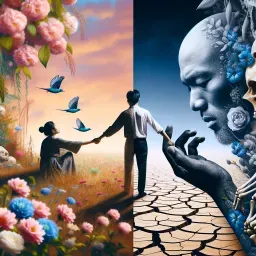
Love conquers all things, except poverty and toothache.
-

What doesn't kill you makes you stronger.
-
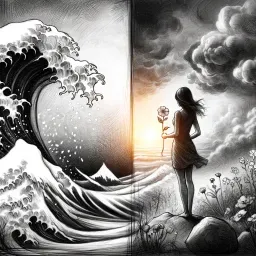
While there's life, there's hope.
-

You never know how strong you are, until being strong is your only choice.
-
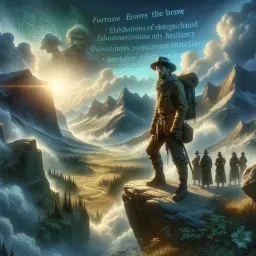
Fortune favors the brave.
-
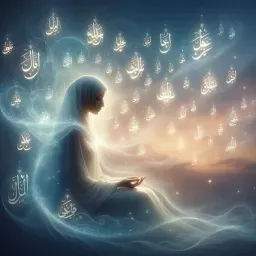
Every time I mention your name, you live in my prayer.
-

United we stand, divided we fall.
-
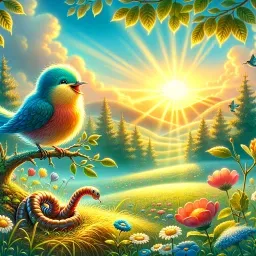
Der frühe Vogel fängt den Wurm.
No Comments